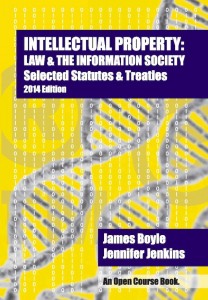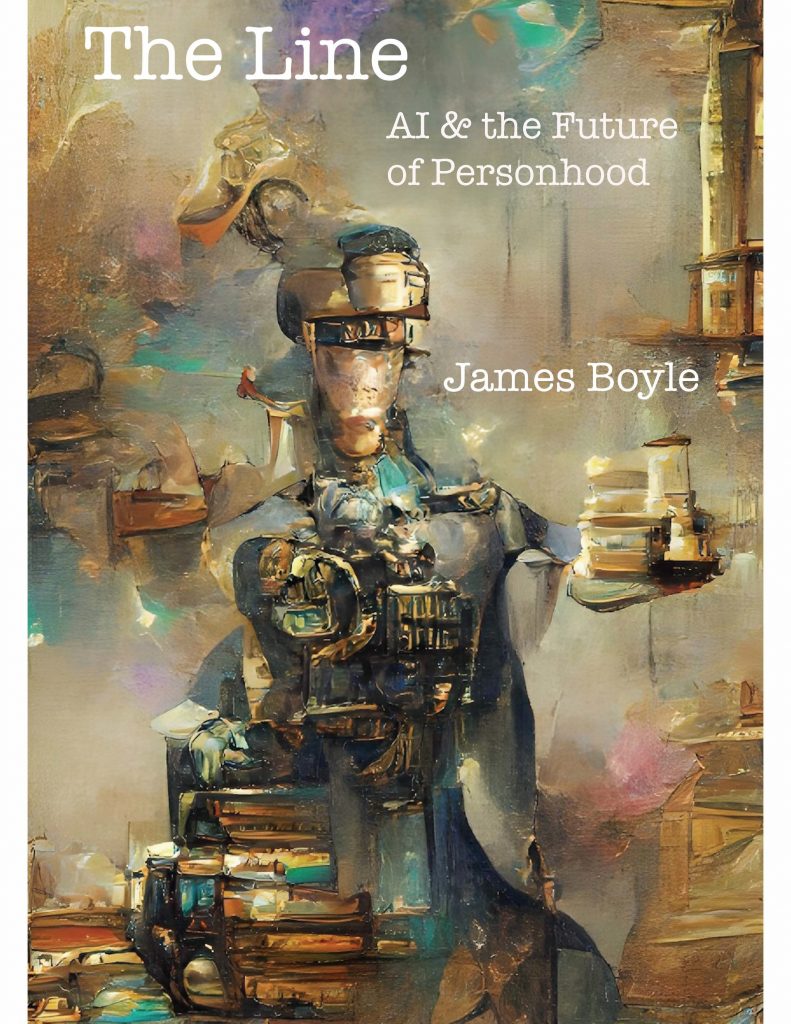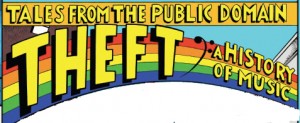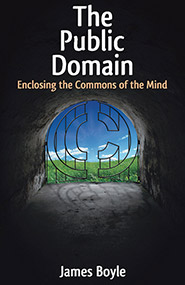Excerpts from our forthcoming Open Coursebook
 Duke’s Center for the Study of the Public Domain is announcing the publication of Intellectual Property: Law & the Information Society—Cases and Materials by James Boyle and Jennifer Jenkins. This book, the first in a series of Duke Open Coursebooks, is available for free download under a Creative Commons license. If you do not want to use the entire casebook you can view and download the individual chapters (in a variety of formats) here. It can also be purchased in a glossy paperback print edition for $29.99, $130 cheaper than other intellectual property casebooks.
Duke’s Center for the Study of the Public Domain is announcing the publication of Intellectual Property: Law & the Information Society—Cases and Materials by James Boyle and Jennifer Jenkins. This book, the first in a series of Duke Open Coursebooks, is available for free download under a Creative Commons license. If you do not want to use the entire casebook you can view and download the individual chapters (in a variety of formats) here. It can also be purchased in a glossy paperback print edition for $29.99, $130 cheaper than other intellectual property casebooks.
We are posting excerpts from our new coursebook Intellectual Property: Law and the Information Society which will be published in two weeks is out now! It will be is of course freely downloadable, and sold in paper for about $135 less than other casebooks. (And yes, it will include discussions of whether one should ever use the term “intellectual property.” ) The book is full of practice examples.. This is one from Chapter One, on the theories behind intellectual property: “What if you came up with the idea of Fantasy Football?” No legal knowledge necessary. Why don’t you test your argumentative abilities…? › Continue reading
Today, we are proud to announce the publication of our 2014 Intellectual Property Statutory Supplement as a freely downloadable Open Course Book.  It offers the full text of the Federal Trademark, Copyright and Patent statutes (including edits detailing the changes made by the America Invents Act.) It also has a number of important international treaties and a chart which compares the various types of Federal intellectual property rights — their constitutional basis, subject matter, length, exceptions and so on.You can see it here in print, or download it for free, here. › Continue reading
It offers the full text of the Federal Trademark, Copyright and Patent statutes (including edits detailing the changes made by the America Invents Act.) It also has a number of important international treaties and a chart which compares the various types of Federal intellectual property rights — their constitutional basis, subject matter, length, exceptions and so on.You can see it here in print, or download it for free, here. › Continue reading
This is the fourth in a series of postings of material drawn from our forthcoming, Creative Commons licensed, open coursebook on Intellectual Property. It is about lawyers and language. › Continue reading
Macaulay’s 1841 speech to the House of Commons on copyright law is often cited and not much read. In fact, the phrase “cite unseen” gains a new meaning. That is a shame, because it is masterful. (And funny.) One fascinating moment? When Macaulay warns that copyright maximalism will lead to a future of rampant illegality, as all happily violate a law that is presumed to have lost all moral legitimacy.
At present the holder of copyright has the public feeling on his side. Those who invade copyright are regarded as knaves who take the bread out of the mouths of deserving men. Everybody is well pleased to see them restrained by the law, and compelled to refund their ill-gotten gains. No tradesman of good repute will have anything to do with such disgraceful transactions. Pass this law: and that feeling is at an end. Men very different from the present race of piratical booksellers will soon infringe this intolerable monopoly. Great masses of capital will be constantly employed in the violation of the law. Every art will be employed to evade legal pursuit; and the whole nation will be in the plot… Remember too that, when once it ceases to be considered as wrong and discreditable to invade literary property, no person can say where the invasion will stop. The public seldom makes nice distinctions. The wholesome copyright which now exists will share in the disgrace and danger of the new copyright which you are about to create.
The legal change he thought would do that? Extending copyright to the absurd length of life plus 50 years. (It is now life plus 70). Ah, Thomas, if only you could have been there for the Sonny Bono Term Extension debates.
› Continue reading
This is the second in a series of postings of material drawn from our forthcoming, Creative Commons licensed, open coursebook on Intellectual Property. The first was Victor Hugo: Guardian of the Public Domain The book will be released in late August.
In 1906, Samuel Clemens (who we remember better by his pen name Mark Twain) addressed Congress on the reform of the Copyright Act. Delicious. › Continue reading
Jennifer Jenkins and I are frantically working to put together a new open casebook on Intellectual Property Law. (It will be available, in beta version, this Fall under a CC license, and freely downloadable in multiple formats of course. Plus it should sell in paper form for about $130 less than the competing casebooks. The accompanying statutory supplement will be 1/5 the price of most statutory supplements — also freely downloadable.) More about that later. While assembling the materials for a casebook, one gets to revisit the archives, reread the great writers. Today I was revisiting Victor Hugo. Hugo was a fabulous — inspiring, passionate — proponent of the rights of authors, and the connection of those rights to free expression and free ideas. › Continue reading








